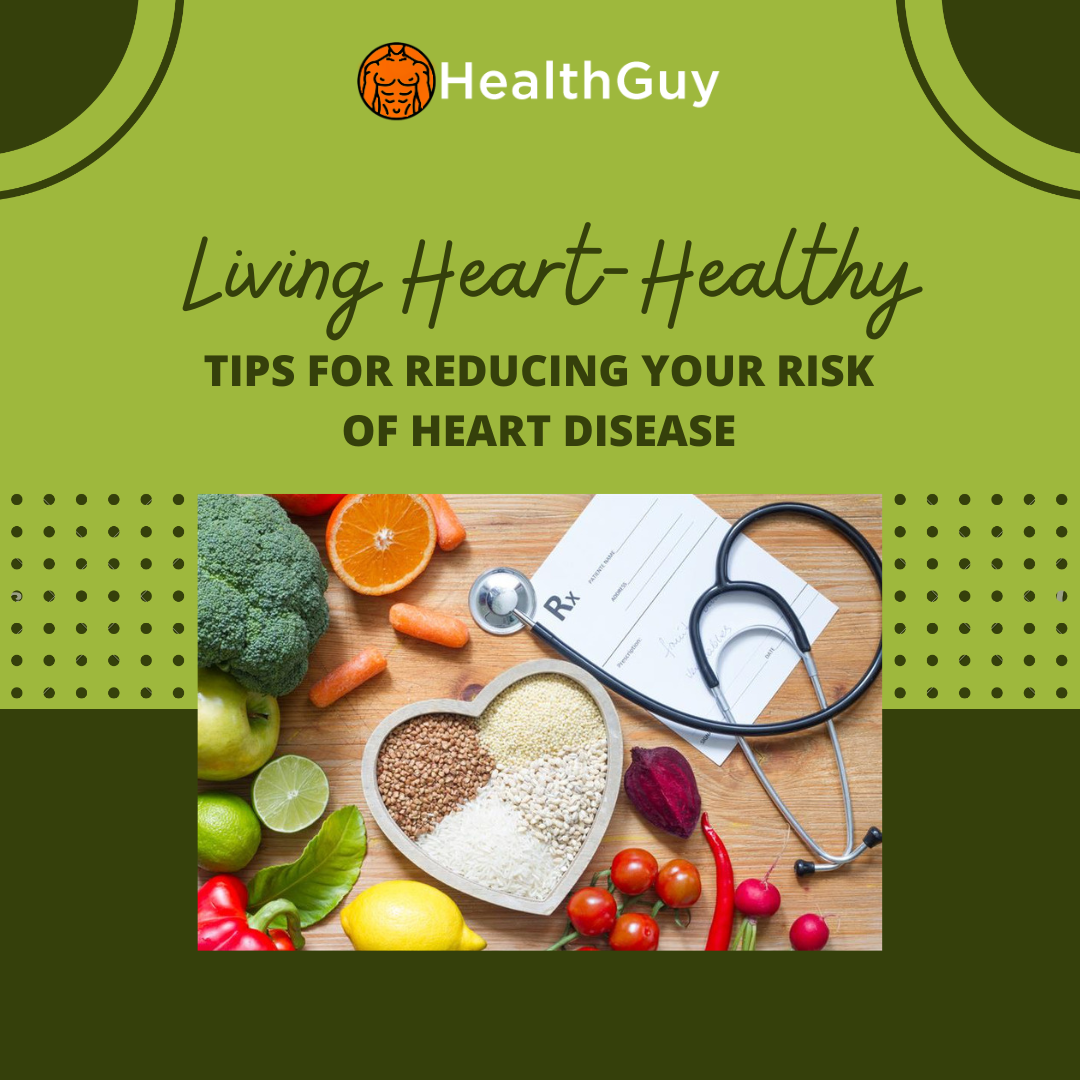
Living Heart-Healthy: Tips for Reducing Your Risk of Heart Disease
Heart disease is a common term used to describe a range of conditions that affect the heart and blood vessels. These conditions can include coronary artery disease, heart failure, arrhythmias, and heart valve problems. Heart disease is a leading cause of death worldwide, but the good news is that many cases can be prevented through lifestyle modifications.
In terms of prevalence, heart disease affects people of all ages and backgrounds. According to the World Health Organization (WHO), heart disease is responsible for 17.9 million deaths per year, which accounts for approximately 31% of all global deaths. In the United States alone, heart disease is the leading cause of death, with one person dying every 36 seconds from heart-related issues.
Given the high prevalence of heart disease and its impact on individuals and communities, it is essential to understand how to prevent it. Making simple lifestyle modifications can go a long way in reducing your risk of heart disease and improving your overall health and well-being.
Contents
Exercise Regularly
Physical activity is one of the best ways to prevent heart disease. Regular exercise can help lower blood pressure, improve cholesterol levels, reduce the risk of diabetes, and aid in weight management. Exercise also helps to strengthen the heart muscle and improve its efficiency.
The American Heart Association recommends that adults get at least 150 minutes of moderate-intensity aerobic exercise or 75 minutes of vigorous-intensity aerobic exercise per week. You can achieve this by engaging in activities such as brisk walking, jogging, cycling, swimming, or dancing. If you’re new to exercise, start slowly and gradually increase the intensity and duration over time.
Eat a Heart-Healthy Diet
A diet rich in fruits, vegetables, whole grains, lean protein, and healthy fats can help lower your risk of heart disease. These foods are rich in nutrients, fiber, and antioxidants that can help protect the heart and blood vessels.
Avoid foods that are high in saturated and trans fats, salt, and added sugars. Saturated and trans fats can raise cholesterol levels, while excess salt can raise blood pressure. Added sugars can contribute to weight gain and increase the risk of diabetes.
To promote heart health, aim for a balanced diet that includes a variety of nutrient-dense foods. Choose whole foods over processed and packaged foods whenever possible, and limit your intake of sugary drinks and snacks.
Maintain a Healthy Weight
Being overweight or obese increases your risk of heart disease. Excess weight can raise blood pressure, increase cholesterol levels, and contribute to insulin resistance and diabetes. Losing weight can help to lower these risk factors and improve heart health.
Work with your healthcare provider to determine a healthy weight range for you and develop a plan to achieve and maintain it. This may include making dietary changes, increasing physical activity, and seeking support from a healthcare professional or a weight loss program.
Don’t Smoke
Smoking is a major risk factor for heart disease. It damages the heart and blood vessels, raises blood pressure, and contributes to the buildup of plaque in the arteries. If you smoke, quitting is the best thing you can do for your heart health.
Quitting smoking can be challenging, but there are many resources available to help you quit. Your healthcare provider can provide you with information and support, and there are many over-the-counter and prescription medications that can aid in smoking cessation. You can also seek support from friends, family, or a support group to help you stay motivated and on track.
Manage Stress
Chronic stress can have a negative impact on your heart health. Stress can raise blood pressure, increase heart rate, and contribute to the buildup of plaque in the arteries. It can also lead to unhealthy coping mechanisms, such as overeating, smoking, or drinking alcohol, which can further increase the risk of heart disease.
Find healthy ways to manage stress, such as meditation, yoga, deep breathing, or spending time with loved ones. Engage in activities that you enjoy and make time for self-care. If you’re struggling with stress or anxiety, talk to your healthcare provider or a mental health professional for support.
Get Enough Sleep
Poor sleep quality or not getting enough sleep can increase your risk of heart disease. Sleep deprivation can raise blood pressure, increase inflammation in the body, and contribute to insulin resistance and diabetes. Aim for 7-8 hours of sleep per night and establish healthy sleep habits, such as going to bed and waking.
There have been many studies that show that making simple changes to your daily habits can help reduce the risk of heart disease. Here are some examples:
- A large study found that there are nine things you can do to help reduce the risk of heart disease. These things include not smoking, keeping your blood pressure and blood sugar under control, being physically active, eating a healthy diet, not drinking too much alcohol, and managing stress.
- Another study found that people who eat a Mediterranean-style diet have a lower risk of heart disease. This means eating more fruits, vegetables, whole grains, and fish, and less processed foods, red meat, and sugary drinks.
- Two studies followed a lot of people for a long time and found that people who live healthy lifestyles, including not smoking, being physically active, eating a healthy diet, and staying at a healthy weight, have a lower risk of heart disease than people who don’t.
- A study found that people with type 2 diabetes who make lifestyle changes, like eating healthy and exercising, have a lower risk of heart disease.
These studies show that making small changes to your daily routine can make a big difference in reducing the risk of heart disease. By being physically active, eating a healthy diet, not smoking, and maintaining a healthy weight, you can improve your heart health and overall well-being.
